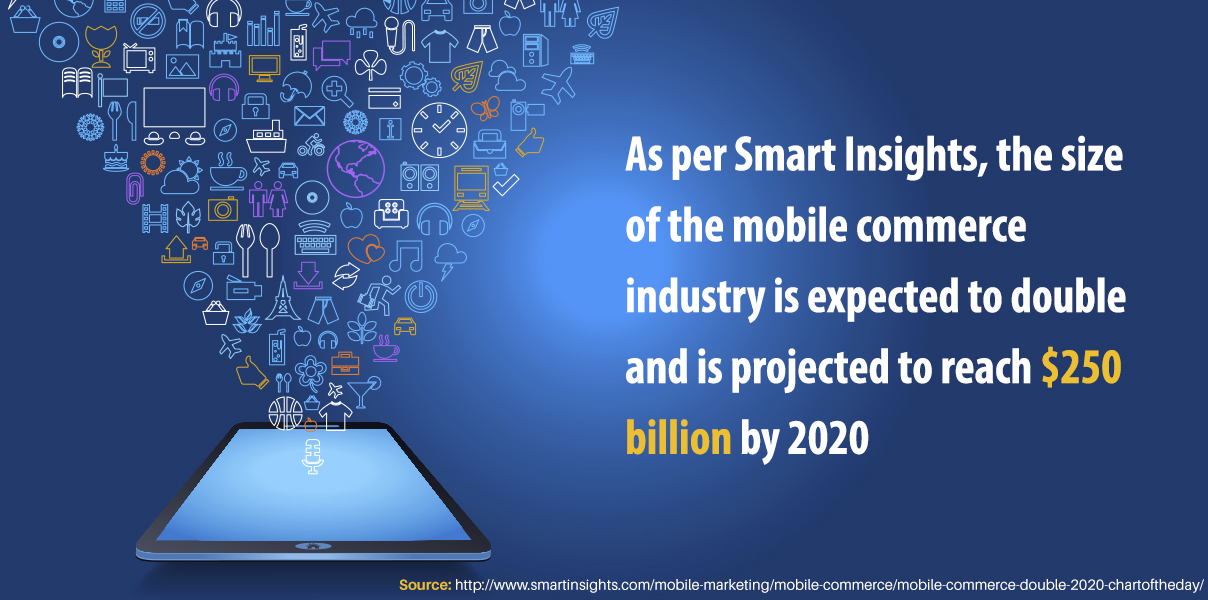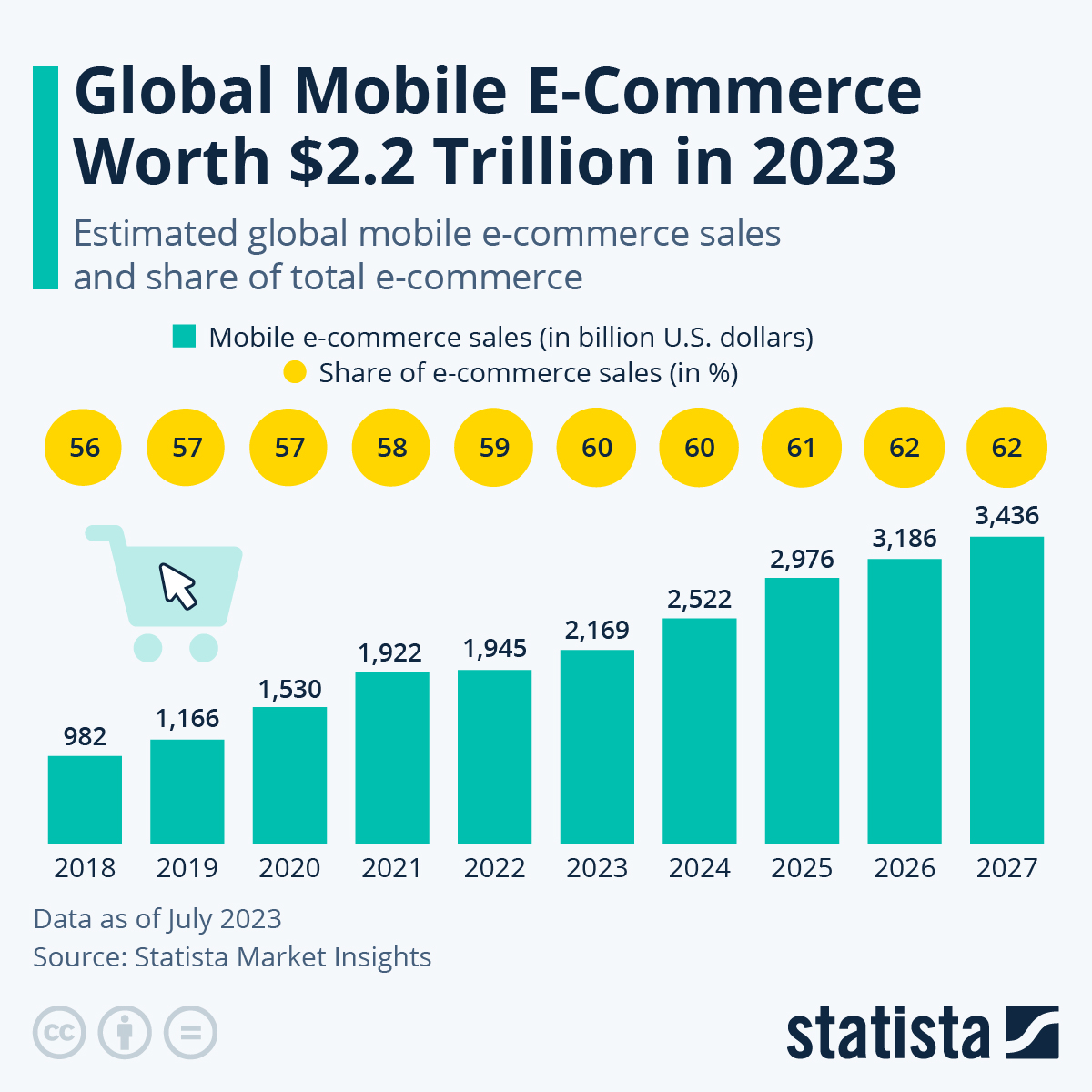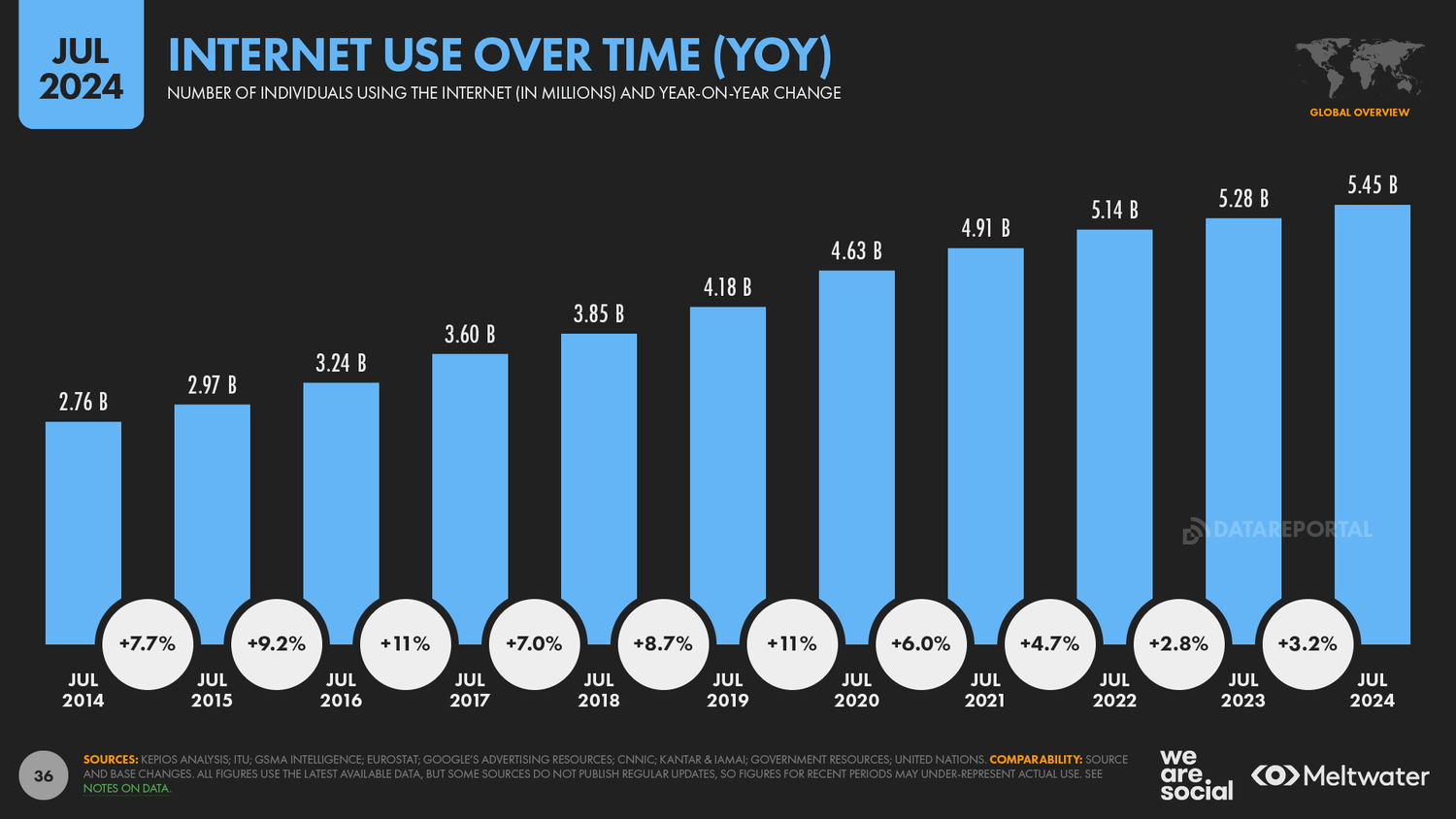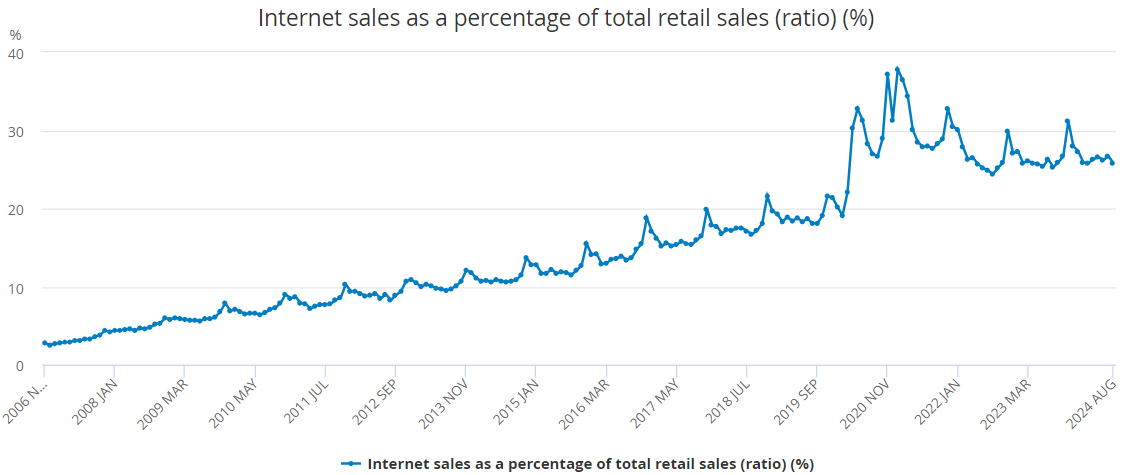
I remember companies like Gartner and Forrester predicting that there would be a trillion dollar market in online sales by 2020 back in the 1990s. Now we are in 2024, it’s a three trillion dollar market, and so I thought it might be interesting to look at the various statistics being bandied about by firms today.
Starting with looking backwards, the high estimates of mobile commerce was approaching around 250 billion dollars a year.
Today, it’s over two trillion dollars a year in mobile commerce …
Source: Statista
… and global retail e-commerce sales were estimated to be around $5.8 trillion in 2023, rising by 39% over the next four years to over $8 trillion by 2027. A total of 5.45 billion people around the world were using the internet at the start of July 2024, equivalent to over 67% of the world’s population.
In the United States, online retail sales accounted for 14.1% of total retail sales in 2020, an increase from 11% in 2019. That is put in the shade by the UK, where a third of all retail sales are now being made online …
Source: Office of National Statistics, UK Government
… or almost $10 billion dollars a month according to Adobe.
More importantly, in the UK, Adobe reckon that for every £7 spent online, £1 is transacted using Buy Now, Pay Later. British consumers used Buy Now Pay Later services to finance £1.35 billion worth of online purchases in March 2024, up 8% year-on-year, and representing over 15% of total online spending.
I always say there are lies, darned lies and statistics and so, to contradict these numbers, some believe that global e-commerce is around $14 trillion (2021) rising to almost $60 trillion by 2028.
Either way you cut it, it’s big and it’s funny how those figures from twenty years ago seem puny by comparison.
There are estimates that most adults spend over three and a half hours online every day, or 56 days a year is spent staring at our phones and screens. Some companies, like Bionic, reckon that we spend over half of our day – more than 13 hours – surfing and scanning online. That amounts to a third of our life spent online.
The thing is that these are all figures based upon the rise of mobile internet, apps and connectivity via our smartphones. What’s going to happen when we sprinkle AI, smart glasses and the metaverse in this space?
According to Syte, it will make us shop at warp speed. Whilst watching a Netflix movie, we can swipe on an actor’s outfit and buy it; billboards will be replaced with touchscreens and interactive ads; advanced visual AI will allow wearers to instantly identify the brand, price, and stock levels of any fashion or home decor items they spot – both in-store and on the street; and they will be able to buy these things with just the blink of an eye.
Just to finish off, and if you like statistics, here’s a few more from Forbes:
- Over 20% of global retail purchases are expected to take place online in 2024
- The global e-commerce market is expected to total $6.3 trillion in 2024
- E-commerce sales are expected to grow 8.8% in 2024
- By 2027, 23% of global retail purchases are expected to take place online
- By 2027, the e-commerce market is expected to total over $7.9 trillion
- Mobile commerce sales are expected to account for 62% of all retail sales by 2027
- 34% of shoppers shop online at least once a week
- 24% drop out of an online shopping session because shipping is too slow
- The online shopping cart abandonment rate is 70%
- 25% of online shoppers abandon their cart because the site wanted them to create an account
- $992 billion was spent globally via social media commerce in 2022
- Social media commerce is expected to reach $8.5 trillion by 2030
- 40% make a purchase because of social media influence
- 49% of social commerce shoppers have had an influencer’s recommendation impact their purchase
- 91% make online purchases using their smartphone
- China, India and Thailand have the highest rate of live social commerce shoppers
- $48 billion is expected to be lost to e-commerce fraud in 2023
So, what’s the point Chris?
The point is that if you are not fit for purpose – as a business or a bank – then you are obsolete. The world is moving at warp speed from online to mobile to augmented AI. Are you keeping up?
Chris M Skinner
Chris Skinner is best known as an independent commentator on the financial markets through his blog, TheFinanser.com, as author of the bestselling book Digital Bank, and Chair of the European networking forum the Financial Services Club. He has been voted one of the most influential people in banking by The Financial Brand (as well as one of the best blogs), a FinTech Titan (Next Bank), one of the Fintech Leaders you need to follow (City AM, Deluxe and Jax Finance), as well as one of the Top 40 most influential people in financial technology by the Wall Street Journal's Financial News. To learn more click here...





